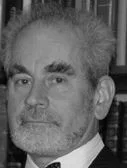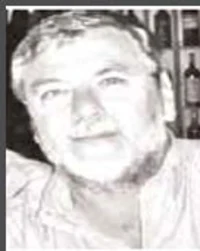Prof. Julian Bion was presented with the 2013 President’s Award from the UK’s Intensive Care Society at their recent State of the Art meeting in London. Bion, Professor of Intensive Care Medicine at the University of Birmingham, recently completed his term as an Editorial Board Member of ICU Management.
The citation for the Award by Prof. Mark Bellamy notes, “Julian is one of those people who seems to have done pretty much everything there is to do in critical care. Moreover, throughout his career, he has been a strong leader and a source of wisdom, expertise and influence…the recurring theme throughout his career has been the improvement of quality and safety of the care given to the critically ill patient.”
Prof. Bion qualified in medicine at the Charing Cross Hospital in London before training as an anaesthetist, during which he served with the Red Cross on the Thai Cambodia border. He was a visiting lecturer at the Chinese University of Hong Kong, worked as a research fellow with the shock study group in Glasgow, and as a senior registrar in Bristol before joining the University of Birmingham as senior lecturer in anaesthetics in intensive care. He became Professor of Intensive Care Medicine in 2007.
His current roles also include: co-director of research and development at University Hospitals Birmingham NHS Foundation Trust, deputy director of the Birmingham Clinical Research Academy and honorary consultant in intensive care medicine at Queen Elizabeth Hospital, Birmingham. He is an associate non-executive director of the Worcestershire NHS Acute Hospitals NHS Trust, chairs the UK Critical Care Leadership Forum and is Civilian Advisor to the Royal Air Force on intensive care medicine.In addition he is Chair of the NICE Acute Medical Emergencies Guideline Development Group; Chair of the UK Critical Care Leadership Forum; a member of the World Health Organization’s sepsis group (within the Integrated Management of Acute Illness programme), that is developing best practice guidance for resource-limited environments; and a member of the national steering committee for the Health Technology Assessment-funded ProMISe study on Protocolised Management In Sepsis. He is Chief Investigator on the High-Intensity Specialist-Led Acute Care (HiSLAC) project.
His contributions to the profession are numerous, both nationally and in Europe. In the UK he chaired the group which delivered the first competency-based training program for intensive care medicine (in 2001), as a member of the Intercollegiate Board for Training in Intensive Care Medicine. In 2010, he was elected foundation Dean of the new Faculty of Intensive Care Medicine for the UK. He served as senior clinical lead for the Department of Health-funded “Matching Michigan" project, which aimed to minimise blood stream infections linked to the use of central venous catheters.
He led the international, EU-funded, collaboration for a competency-based training program in intensive care medicine (CoBaTrICE). Bion was President of the European Society of Intensive Care Medicine from 2004 to 2006, when he was interviewed by ICU Management. He established the European Critical Care Research Network and helped establish the international genetics of sepsis group, GenOsept. He was a member of the Executive Committee of the Surviving Sepsis Campaign from 2003-9.
His research interests include improving the management of patients with sepsis, and acutely ill patients in general, enhancing the reliable delivery of best practice care, and improving patient outcomes through professional education and training. He has a particular interest in patient safety.
He received the Shubin-Weil international award for excellence from the Society of Critical Care Medicine in the USA in 2004. He was awarded honorary life memberships of the Czech Society of Intensive Care Medicine in 2008, of the UK Intensive Care Society in 2009 and honorary membership of the European Society of Intensive Care Medicine in 2012.
Bion J, Rothen H-U (2012) Competency-based training in intensive care medicine: creating the new intensive care specialist. ICU Management, 12(2): 6-7.
Bion J (2010/11) Challenges of working in a 100-bed intensive care unit. ICU Management, 10(4): 42-3.
Bion J (2010) Critical care in the United Kingdom: an interview with Professor Julian Bion. ICU Management, 10(3): 43-4.
Gupta R, Bion J, White A (2007) Burnout in intensive care. ICU Management, 7(1): 6-7,9.
The citation for the Award by Prof. Mark Bellamy notes, “Julian is one of those people who seems to have done pretty much everything there is to do in critical care. Moreover, throughout his career, he has been a strong leader and a source of wisdom, expertise and influence…the recurring theme throughout his career has been the improvement of quality and safety of the care given to the critically ill patient.”
Prof. Bion qualified in medicine at the Charing Cross Hospital in London before training as an anaesthetist, during which he served with the Red Cross on the Thai Cambodia border. He was a visiting lecturer at the Chinese University of Hong Kong, worked as a research fellow with the shock study group in Glasgow, and as a senior registrar in Bristol before joining the University of Birmingham as senior lecturer in anaesthetics in intensive care. He became Professor of Intensive Care Medicine in 2007.
His current roles also include: co-director of research and development at University Hospitals Birmingham NHS Foundation Trust, deputy director of the Birmingham Clinical Research Academy and honorary consultant in intensive care medicine at Queen Elizabeth Hospital, Birmingham. He is an associate non-executive director of the Worcestershire NHS Acute Hospitals NHS Trust, chairs the UK Critical Care Leadership Forum and is Civilian Advisor to the Royal Air Force on intensive care medicine.In addition he is Chair of the NICE Acute Medical Emergencies Guideline Development Group; Chair of the UK Critical Care Leadership Forum; a member of the World Health Organization’s sepsis group (within the Integrated Management of Acute Illness programme), that is developing best practice guidance for resource-limited environments; and a member of the national steering committee for the Health Technology Assessment-funded ProMISe study on Protocolised Management In Sepsis. He is Chief Investigator on the High-Intensity Specialist-Led Acute Care (HiSLAC) project.
His contributions to the profession are numerous, both nationally and in Europe. In the UK he chaired the group which delivered the first competency-based training program for intensive care medicine (in 2001), as a member of the Intercollegiate Board for Training in Intensive Care Medicine. In 2010, he was elected foundation Dean of the new Faculty of Intensive Care Medicine for the UK. He served as senior clinical lead for the Department of Health-funded “Matching Michigan" project, which aimed to minimise blood stream infections linked to the use of central venous catheters.
He led the international, EU-funded, collaboration for a competency-based training program in intensive care medicine (CoBaTrICE). Bion was President of the European Society of Intensive Care Medicine from 2004 to 2006, when he was interviewed by ICU Management. He established the European Critical Care Research Network and helped establish the international genetics of sepsis group, GenOsept. He was a member of the Executive Committee of the Surviving Sepsis Campaign from 2003-9.
His research interests include improving the management of patients with sepsis, and acutely ill patients in general, enhancing the reliable delivery of best practice care, and improving patient outcomes through professional education and training. He has a particular interest in patient safety.
He received the Shubin-Weil international award for excellence from the Society of Critical Care Medicine in the USA in 2004. He was awarded honorary life memberships of the Czech Society of Intensive Care Medicine in 2008, of the UK Intensive Care Society in 2009 and honorary membership of the European Society of Intensive Care Medicine in 2012.
Further Reading
Bion J, Rothen H-U (2012) Competency-based training in intensive care medicine: creating the new intensive care specialist. ICU Management, 12(2): 6-7.
Bion J (2010/11) Challenges of working in a 100-bed intensive care unit. ICU Management, 10(4): 42-3.
Bion J (2010) Critical care in the United Kingdom: an interview with Professor Julian Bion. ICU Management, 10(3): 43-4.
Gupta R, Bion J, White A (2007) Burnout in intensive care. ICU Management, 7(1): 6-7,9.











